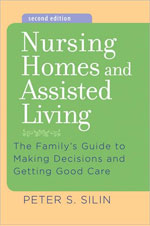Financial Advice to Seniors
Below is an article from the New York Times. I have sat in on the Canadian version of the Certified Seniors Advisor course, and thought it was excellent. But it helps to remember that no matter what designation people carry after their names, it does not certify that they behave ethically or with the best interests of their clients in mind. To be a Certified Senior Advisor here in Canada, and use the initials, CSA, you have to belong to the Academy of Certified Seniors Advisors, which does have a code of ethics...however...buyer beware of who you are dealing with. Make sure you obtain references when you start using someone new, and find out as much as you can about them and their standing in the various associations to which they belong.
Panel Questions Financial Advisers for the Elderly
By CHARLES DUHIGG
Published: September 6, 2007
WASHINGTON, Sept. 5 Federal lawmakers called Wednesday for a universal accreditation standard for financial advisers working with older Americans, and sharply questioned insurance and other executives about their tactics for selling financial products to elderly investors.
At a hearing of the Senate Special Committee on Aging, senators asked regulators and executives about sales agents who use titles like certified senior adviser and certified elder planning specialist to sell financial advice and complicated insurance products.
“Seniors should not be worried that the title after their adviser’s name is just a marketing ploy,” said Senator Herb Kohl, Democrat of Wisconsin and chairman of the committee. “We’re taking the first step toward much-needed reform.”
Christopher Cox, the chairman of the Securities and Exchange Commission, and state regulators said they expected soon to propose guidelines prohibiting sales agents from using titles that imply an expertise in financial issues for older Americans, when that designation has little or no value.
Those guidelines would probably be carried out by state securities or insurance regulators.
“The sheer proliferation of this alphabet soup of titles is going to get worse, not better, unless something is done,” Mr. Cox said in an interview. “There’s been a spotlight turned on this topic, and we’re going to make sure it gets solved.”
In July, The New York Times reported that tens of thousands of financial advisers are working hand in hand with insurance companies to market themselves to older Americans using credentials like registered financial gerontologist, certified retirement financial adviser and certified senior adviser.
Many of these titles can be earned quickly from for-profit businesses and sound similar to established credentials, like certified financial planner, that require far more study, as well as deep background checks.
This is the first time a Senate committee has called for a universal standard on these issues, said staff members affiliated with the committee.
Last year, 44 percent of complaints received by state security administrators were filed by older consumers, and almost half of those concerned complicated insurance products like annuities, according to data collected by the North America Securities Administrators Association.
Annuities are insurance contracts that offer buyers monthly or yearly income in exchange for one large lump-sum payment. Some regulators have been sharply critical of annuities that do not begin paying for years or that are tied to stock returns.
“Most of these annuities are completely unsuitable for most seniors,” said Joseph Borg, the chief Alabama securities regulator and president of the securities administrators association, in an interview before his testimony. “Half the time, the agents who sell them don’t understand them. But they know insurance companies will pay high commissions, and that seniors will listen if the salesmen call themselves senior experts or certified advisers.”
Gary Bhojwani, president of Allianz Life Insurance of North America, one of the largest annuity companies, testified that the company’s average customer had a net worth of more than $500,000, excluding the home, and owned annuities as only a portion of their investment portfolio.
“We believe we have a valuable product to offer, and we've instituted policies to make sure they are only sold to suitable buyers,” Mr. Bhojwani said. “We've offered a benefit to seniors who might otherwise outlive their savings.”
Mr. Bhojwani also testified that Allianz would begin prohibiting sales agents from using many titles that imply an expertise in senior finances and that the company would enhance scrutiny of sales practices, including contacting all new customers over 74 years old to make sure they understand what they have purchased.
At least two other insurance companies that are among the nation’s largest sellers of annuities ING USA Annuity and Life Insurance Company, and Aviva USA have recently told sales agents they may not use titles like certified senior adviser.
The most pointed questions at the hearing were directed at Edwin Pittock, president of the Society of Certified Senior Advisors.
“This group says they don’t train financial advisers, but then throughout the Web site it says ‘certified adviser’ over and over,” said Senator Claire McCaskill, Democrat of Missouri. “When I look at this group’s materials, they talk about marketing and marketing and marketing, but very few chapters involve any education of financial expertise whatsoever.”
Mr. Pittock testified that the group required title holders to tell potential clients that the designation did not imply expertise in financial affairs. He added that the group had revoked the C.S.A. designation from 37 of the 12,000 title holders because of misconduct.
“Only 37 titles revoked?” asked Mr. Kohl. “That’s almost zero. It sounds like they have to be really egregious violations before anything happens
Labels: Financial Abuse and the Elderly




<< Home